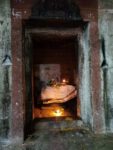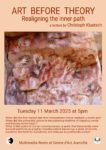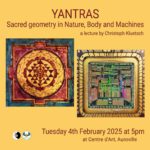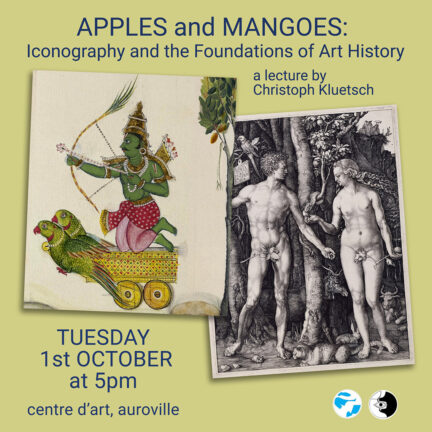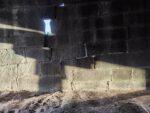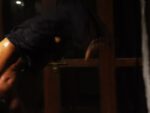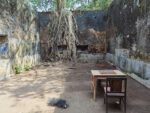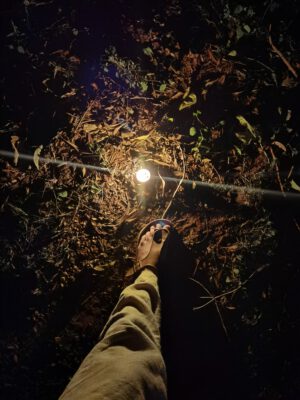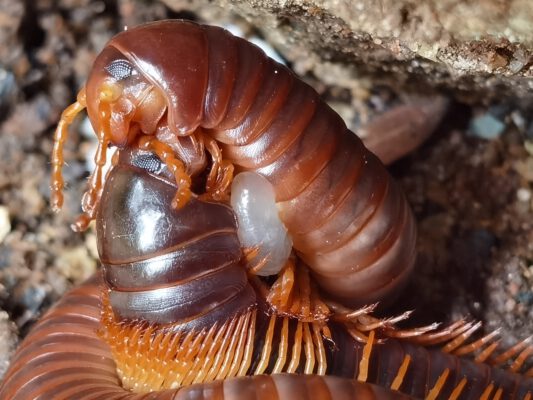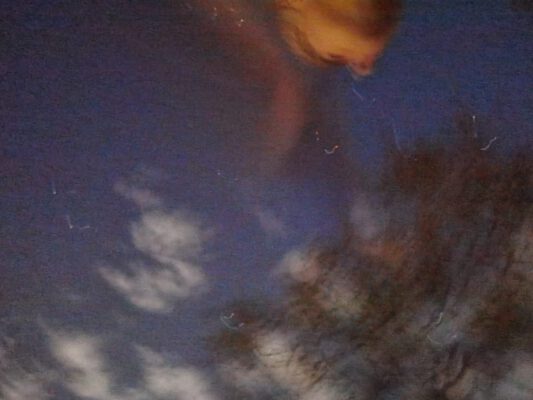The snake in paradise seduced Eve to eat a fruit from the forbidden tree of knowledge that holds the distinction between good and evil. Why was the tree of knowledge a forbidden tree? Why did the snake seduce Eve? What did the fruit taste like?
When I asked myself why I want to talk about this, I felt like Eve standing in front of the tree, talking to a snake who attempts to seduce me to eat the fruit. Do I want to know? I don’t mean knowing about a topic, a trope, or a genre. I mean, on the broadest plane of existence, why do I want to engage on the plane of knowledge? Why do I want to know anything? Wouldn’t ignorance be bliss and ultimately let me stay in paradise, let me stay closer to creation? Why do I need to reflect and create a cognitive dissonance between myself and the world? When I see the tree of knowledge and its fruits, why do I have the urge to understand it and not just eat the fruit? But isn’t that what the snake is trying to do, to seduce me to enjoy the fruit, to eat it instead of reflecting on it. What exactly is the snake offering?
I think that first, the seduction of the snake is offering a choice. Eve can eat the fruit or contemplate it. Most likely she had been contemplating it for quite some time when the snake came and whispered into her ear to eat the fruit. The contemplation must have been a special one, because everything else in paradise had been there for enjoyment; only that tree, together with the tree of life, was separated from the world of enjoyment by a taboo. That tree of knowledge was not to be enjoyed. I am trying to imagine that, living in paradise and having two trees there that I cannot enjoy. I try to imagine what it might be like to not have eaten from the tree of knowledge, to have remained in the state of ignorance and face, from that plane of existence, a taboo, the unknown, the lush sweet fruits that I can’t have. The taboo interferes with and creates a will, a wish, a wanting, and desire. I desire that which I don’t have; there is no need to desire what I have, that I can already enjoy. The snake, sitting in that tree, is that desire to know.
But we are still in the paradox world here. Why is that tree in paradise? And why is there a snake? And why can I not just leave it alone? Often this is related to obedience, that God established laws, which were broken by Eve, and therefore suffering came into the world. I am more interested in the epistemological, psychological, and spiritual aspects of that story. Something awakens when the human mind leaves the state of enjoyment and embraces reflection and the desire to break the mirror of reflection to get to a deeper reality. But the key question here is, why is the tree forbidden? And when Eve eats from the tree, why do Adam and Eve realize their nakedness and feel ashamed? And why is there such a drastic punishment that humankind is thrown out of paradise?
I have a physical reaction when I think about these things. My curious, rational mind wants to explore these boundaries, but I am also getting nervous, I feel anxious, my blood pressure goes up. I want to know; I am seduced into that type of thinking, yet my body doesn’t feel comfortable. It took me a very long time to acknowledge the relationship between thinking and the subtle signs of the body that indicate how I feel about what I am thinking and how the territory I am entering with my mind feels. Do I feel comfortable there? Is there something for me to find? Do I have to face something there? Is it dark or bright? The snake offering the fruit seduces Eve into a territory that is uncomfortable; she realizes that she is naked and becomes ashamed. She loses her innocence. It is depicted as if this process is not reversible. Were we all born outside of paradise after that? Or do we individually go through that process when we grow up, when we leave the mind of the infant and enter into the rational, reflective mind? For instance, in the mirror stage, when the toddler recognizes himself/herself in the mirror, or when we reach puberty and don’t like to be naked in front of others anymore. Once we realize that we are not in paradise, once we realize that the world out there is difficult to comprehend and that the meaning of our existence is even harder to grasp, we try to constitute meaning; we try to make sense.
But in the garden, there was another forbidden tree, the tree of life. Both were in the center of the garden. The serpent seduced Eve into eating from the tree of knowledge, not from the tree of life. And because Adam and Eve ate the fruit from the tree of knowledge, they became like gods, knowing good and evil. Yet God did not want them to eat also from the tree of life to become immortal. He did not trust his own creatures, so he banned them from paradise.
Apples_and_MangoesAuro Artworld is organizing a series of 6 lectures at the Centre d’Art multimedia room in Auroville. These lectures, conducted by Dr. Christoph Kluetsch, will explore connections between art, philosophy, and spirituality, bridging Eastern and Western traditions to illuminate the enduring questions of existence, consciousness, and creativity.
The series will be offered on the first Tuesday of every month, beginning on October 1st.
Tue Oct 1st 2024 at 5pm:
Apples and Mangoes: Iconography and the Foundations of Art History
Apples are the fruits of the tree of knowledge in Christian paradise; they symbolize the
world in the hands of kings and are a fruit of poison in Snow White and the Seven Dwarfs.
The mango, on the other hand, is a fruit of sweetness and joy. Ganesha received it as a
reward for circumventing Shiva. Creative conversations and gatherings often happen under
the mango tree, which can be found in temples and gardens of enlightenment. The
iconography of these symbolic fruits invites a reflection on key art historical methodologies
by E. Panofsky, H. Wölfflin, and A. Warburg.
Future Lectures
Tue Nov 5th 2024 – The Principles of Chola Temple Architecture: A Case Study of Irumbai
Tue Dec. 3rd 2024 – Retinal Art and the Ruins of Representation: Revisiting Plato’s Cave and the Notion of Rasa in the Natyashastra
Tue Jan 7th 2025 – Who is Seeing When Seeing: The Kena Upanishad and the Sensation of Logic
Tue Feb 4th 2025 – Film is Thought: H. Bergson’s Cinematograph and How J. L. Godard Shocks the Viewer into Reality
Tue Mar 4th 2025 – Reading Deleuze in India: Plane of Immanence, Rhizome, Brahman, and Conversations with AI
